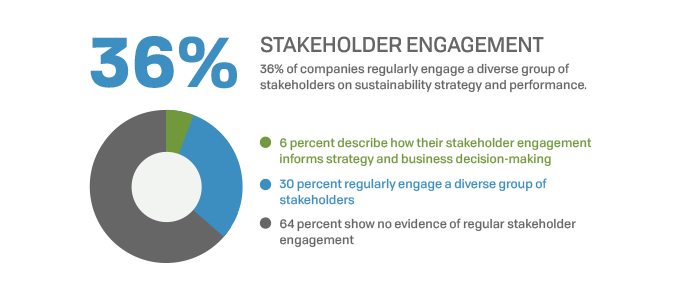How to Give Emotional Support: 12 Steps with Pictures
Content

Another study, which examined 235 newlyweds, found that both partners are happier if the husband gets the types of social support he needs most. For women, it was enough that the husband was just trying to offer support, even if he didn’t always offer the right kind. This type of support often involves physical comfort such as hugs or pats on the back, as well as listening and empathizing. With emotional support, a friend or spouse might give you a big hug and listen to your problems, letting you know that they’ve felt the same way, too. The final way to show moral support is to pamper someone.
What are examples of emotional support?
- Listen. Simply giving someone space to talk, and listening to how they're feeling, can be really helpful in itself.
- Offer reassurance. Seeking help can feel lonely, and sometimes scary.
- Stay calm.
- Be patient.
- Try not to make assumptions.
- Keep social contact.
In other words, of those options above, your best bet is to call a friend to come over. Providing emotional support requires a person to listen without judgment and show that they understand by responding empathetically. This may mean that a person has to resist the impulse to try and fix things or talk someone out of how they are feeling. Often this is where people become drawn to offer advice or talk about their own experiences to help the other person ‘feel better’. However, doing this can actually make them feel like they are not being heard. Really listen to what they are saying, including the underlying feelings they are expressing.
Listening Actively
And it’s easier to give moral support if people trust you to have a positive mental attitude when they’re going through a tough time. After a breakup, it’s important to surround yourself with friends and family who can give you moral support while you’re feeling down. A lack of emotional support doesn’t have to spell out an end for the relationship. It is not an easy feat to build up emotional intimacy, but it is possible. You may attempt it yourself using recommended steps foto increase the level of support or try counseling.

There is some disagreement on that, and research is still ongoing. On one hand, the buffering hypothesis says that social support is mostly beneficial during stressful times. The idea behind it is the fact that social support buffers, or protects, people from the negative effects of stress.
Watch Articles
One way to show your moral support to someone is by expressing how grateful you are to have them in your life. Being vocal about what amazes you about this person will help them feel appreciated and supported. You can give so much emotional support simply by texting them a gratitude list of all the things you love about them or handwriting it all in a card that you mail to them.

Exercising this break down can also help to highlight what types of support we would like to develop or strengthen. You may have experienced belonging support from the current community notion that “we’re all in this together”. As people socially distance, though it’s difficult, we are doing it out of a sense of connection and responsibility for our community’s welfare. You may also feel this support from the smaller communities that you are a part of such as an organization or place of worship.
Love, care, and encouragement
In other words, if you believe that you have a lot of social support, even if you don’t, you’ll end up better off than if you actually receive a lot of social support but don’t believe that you do. Of course, hopefully you’ll perceive and actually receive a high level of social support! Going back to our example above, according to the main effects hypothesis, Sarah needs social support both when she has a job and when she doesn’t. There are many negative health effects of too much stress, including a weakened immune system and heart disease. As a result, finding a way to cope with stress is an important topic to many people. Psychologists have done extensive research on coping with stress, and what they’ve found is that one of the best ways to cope is through seeking and receiving social support.
Advice is the act of providing someone a suggestion or recommendation on how they should proceed on a future action. Essentially, by asking for advice you are relying on someone else to make a decision for you on how they would proceed if they were in your shoes. Advice is certainly helpful, especially if you are completely unsure of what your options are or already have an idea of what you want to do and just want someone to validate that decision for you. However, when you are facing a more complicated challenge, seeking advice from others can sometimes be a “quick fix” which causes both parties to miss the underlying issue altogether. If you are experiencing a more complex challenge that warrants advice, you probably want to know that someone else can understand what you are going through.
If talking about sad things with them makes you feel sad, be sad! Sharing your authentic feelings and reactions with someone you care about models for them that it is okay for them to be vulnerable and sharing their feelings with you. It also reminds them that we are all human and we all have emotions. Many researchers recommend asking your partner, or your friends, what type of support they would like to receive.
- Be curious about what they are experiencing and ask questions in a gentle way so the other person doesn’t feel like they are questioned.
- Venting and spending time with loved ones can help reduce our anxiety and increase our mood.
- I will definitely encourage him to sign up and assure him that I will be with him every step of the way.
- Just remember you’re not there to fix their problems, but rather there to provide them support in finding a solution to their issue.
- Healthline has strict sourcing guidelines and relies on peer-reviewed studies, academic research institutions, and medical associations.
- Once you help a loved one deal with a difficulty, you can check-in after about it.
In one study, caregivers of AD patients were enrolled in a randomized intervention trial designed, in part, to teach support seeking skills. In comparison to a usual-care control group, those who were in the treatment group were better at fostering their emotional ties and were more satisfied with support34. This type of intervention has also been shown to work in child patient populations. For instance, children with cystic fibrosis were involved in a randomized intervention trial that educated the children about their disease and taught them relevant social skills. Those in the treatment group improved their quality of life and peer relationships, and decreased their loneliness and the perceived impact of the disease35.
Highlighting when you receive this type of support, and recognizing our accomplishments as well as complimenting others is crucial to keep up our motivation. All of these types of social support ‘work’, but not with everybody, and not in the same ways. Different people have preferences for a certain type or a combination or a few types of social support. Those offering informational support do so in the form of advice-giving, or in gathering and sharing information that can help people know of potential next steps that may work well. Verywell Mind articles are reviewed by board-certified physicians and mental healthcare professionals. Medical Reviewers confirm the content is thorough and accurate, reflecting the latest evidence-based research.
- Only reflect back what they are saying when there is a natural silence in the conversation or when it’s clear that they are waiting for feedback.
- Any medical information published on this website is not intended as a substitute for informed medical advice and you should not take any action before consulting with a healthcare professional.
- I found it interesting when you said that emotional support can increase overall physical health as it gives us a shoulder to lean on during hard times.
- Having a partner and family members who support you can help you deal with immense grief in your life or be an effective way to relieve stress and anxiety.
- Listening and showing empathy does not mean that you necessarily agree with what the person is saying; rather it is reflecting that you care about them and what they are experiencing.
Table 1 indicates that the audience seldom provides informational support and network support to A-list bloggers; both types of social support constitute less than nine percent of all responses. After further comparing the differences emotional support vs moral support of comment frequency between the two types of blog, Table 1 shows that the audience seldom offers advice or reference information to diary-like bloggers. However, they offer more informative social support to informative bloggers.